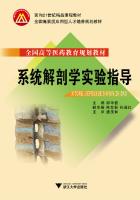The Protestant princes refused to submit on the ground that their doctrines were in harmony with the Word of God, and to justify this contention Melanchthon published the /Apologia Confessionis Augustanae/, which was in many points more full and explicit than the Confession itself. Some of the German cities that had embraced the Zwinglian doctrine, notably, Strassburg and Constance, repudiated the Augsburg Confession, and presented a document embodying their beliefs, known as the /Confessio Tetrapolitana/ which found no favour with Charles V. or with the Diet. Finally, on the 18th November, the Emperor announced to the Diet that until a General Council should meet, everything must be restored to the /status quo/, that he felt it incumbent upon him as protector of the Church to defend the Catholic faith with all his might, and that in this work he could count on the full support of the Catholic princes. Unfortunately, it was by no means correct to state that the Catholic rulers of Germany stood behind their Emperor. Nearly all of them were anxious to avoid civil war at any cost, and not a few of them hesitated to support the Emperor lest the suppression of the Protestant princes might lead to the establishment of a strong central power. Nor were the Protestants alarmed by the threat of force. With the Turks hovering on the flanks of the empire, they were confident that they might expect concessions rather than violence.
The Protestant princes met in December (1530) at Schmalkald to consider their position, and early in the following year (1531) they formed the Schmalkaldic League for the defence of their religious and temporal interests. Negotiations were opened up with France, Denmark, and England, and notification was made to the Emperor that they must withhold their assistance against the Turks until their religious beliefs were secured. They refused, furthermore, to recognise Ferdinand, brother of Charles V., whom Charles had proclaimed King of the Romans. The Emperor, alarmed by the news that Soliman was preparing an immense army for a general attack on Italy and Austria, and well aware that he could not count either on the assistance of the Catholic princes or the neutrality of France, was forced to give way.
In July 1532 peace was concluded at Nurnberg. According to the terms of the Peace of Nurnberg it was agreed that until a General Council should assemble no action should be taken against the Protestant princes, and that in the interval everything was to remain unchanged.
This agreement, it was stipulated, should apply only to those who accepted the Confession of Augsburg, a stipulation that was meant to exclude the followers of Zwingli.
Charles V. was really anxious that a Council should be called, nor was Clement VII. unwilling to meet his wishes, if only he could have been certain that a Council constituted as such assemblies had been constituted traditionally, could serve any useful purpose. Time and again Luther had expressed his supreme contempt for the authority of General Councils, though he professed to be not unwilling to submit the matters in dispute to a body of men selected by the civil rulers.
In 1532-3 Pope and Emperor met at Bologna to discuss the situation, and messengers were despatched to see on what terms the Protestants would consent to attend the Council. The members of the Schmalkaldic League refused (1533) to accept the conditions proposed by the Pope, namely, that the Council should be constituted according to the plan hitherto followed in regard to such assemblies, and that all should pledge themselves beforehand to accept its decrees.[31]
Clement VII. died in September (1534) and was succeeded by Paul III.
(1534-49). He convoked a General Council to meet at Mantua in 1537, but the League refused once more to attend (1535). Even had there been no other difficulties in the way, the war that broke out with renewed bitterness between Charles V. and Francis I. would have made it impossible for such a body to meet with any hope of success. The helpless condition of the Emperor, confronted, as he was, on the one side by the French and on the other by the Turks, raised the hopes of the Protestant party, and made them more determined than ever to attend no Council in which the authority of the bishops or the jurisdiction of the Pope should be recognised. Moreover, each year brought new accessions to their ranks. The appearance of organised Christian bodies, completely national in character, accepting the civil rulers as their head, and conceding to them full power to deal as they liked with ecclesiastical property, created a deep impression on several princes and free cities, and made them not averse to giving the new religion a fair trial. In 1530, the Elector of Saxony, Philip of Hesse and the rulers of Ansbach, Anhalt, Brunswick-Luneburg, Bayreuth, East Friesland, and a few of the larger cities had gone over to Luther. Before ten years had elapsed the greater part of Northern Germany had fallen from the Catholic Church, and even in Southern Germany Protestantism had made serious inroads. Several of the more important cities such as Wittenberg, Strassburg, Nurnberg, Magdeburg, Frankfurt-on-Main, Hamburg, and Erfurt became leading centres for the spread of the new teaching, while many of the German universities, for example, Erfurt, Basle, Frankfurt, Rostock, and Marburg supported strongly the efforts of Luther.















